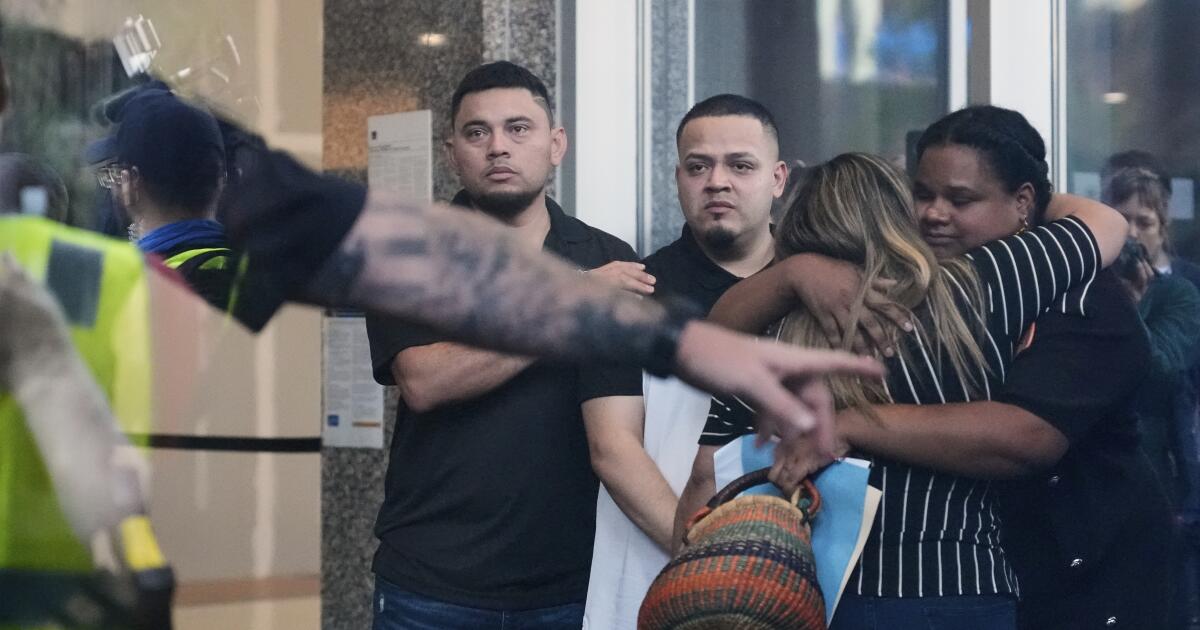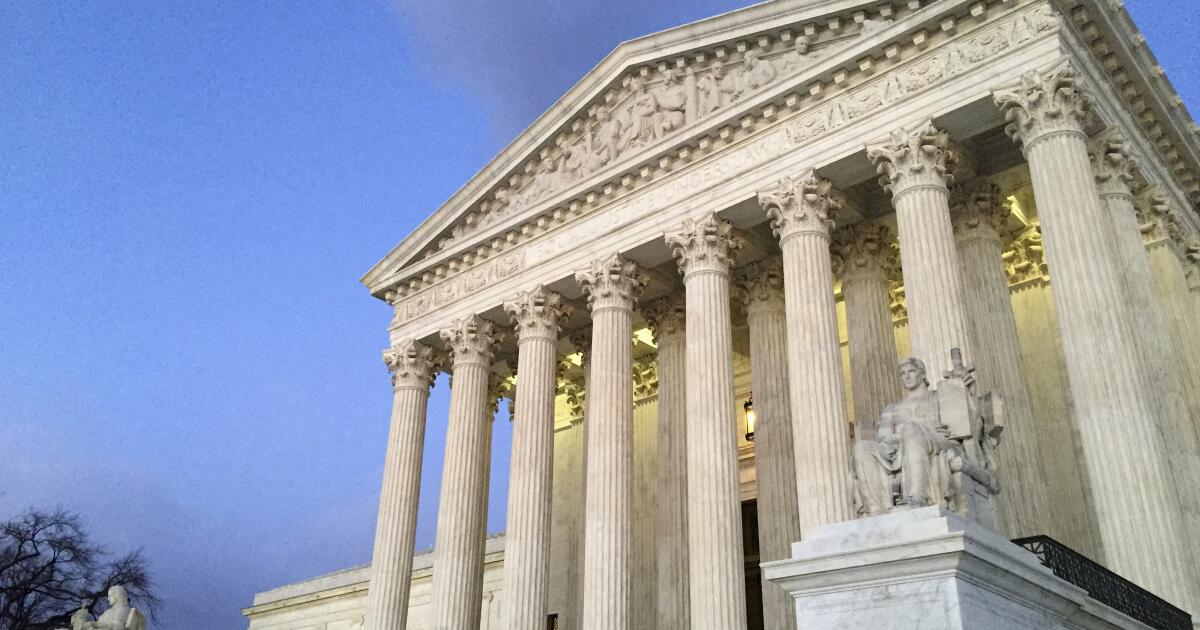What to know about Abrego Garcia’s asylum claim. Experts say it’s a smart but risky legal move
Kilmar Abrego Garcia ’s request for asylum in the United States is a prudent legal strategy, experts say, because it gives his lawyers better options for fighting the Trump administration’s efforts to deport him.
But it’s also a gamble. Depending on how the courts rule, Abrego Garcia could end up back inside the notorious El Salvador prison where he says he was beaten and psychologically tortured.
“It’s a strategic move,” Memphis-based immigration attorney Andrew Rankin said of the asylum request. “And it can certainly backfire. But it’s something I would do as well if I were representing him.”
Abrego Garcia, 30, became a focus of President Trump’s immigration crackdown when he was wrongfully deported to his native country in March. The administration is trying to deport him again.
Here are some things to know about his case:
‘You can’t win every case’
The administration deported Abrego Garcia to El Salvador because U.S. officials said he was an MS-13 gang member. It’s an allegation that Abrego Garcia denies and for which he wasn’t charged.
His removal to El Salvador violated a U.S. immigration judge’s ruling from 2019 that barred his deportation there. The judge found that Abrego Garcia faced credible threats from a local gang that had extorted from and terrorized his family.
Following a U.S. Supreme Court order, the administration returned him to the United States in June. But it was only to face human smuggling charges, which his lawyers have called preposterous and vindictive.
The administration has said it now intends to deport Abrego Garcia to Uganda. Stephen Miller, White House deputy chief of staff and the main architect of Trump’s immigration policies, told reporters Friday that Garcia has “said he doesn’t want to go back to El Salvador.”
Miller said the administration is “honoring that request by providing him with an alternate place to live.”
In an effort to fight back, Abrego Garcia has notified the U.S. government that he fears being sent to Uganda, which has documented human rights abuses. He said he believes he could be persecuted, tortured or sent from there to El Salvador.
But even if he thwarts deportation to Uganda in immigration court, he probably will face attempts to remove him to another country and then another until the administration succeeds, Rankin said.
“By the law of averages, you can’t win every case,” the lawyer said. “The government has sunk its teeth far into what they’re doing with Kilmar and immigration in general, that it wouldn’t make any sense for them to just give up the fight.”
Taking a risk
Asylum, however, could end the fight.
The request would place the focus solely back on his native El Salvador, where Abrego Garcia has previously shown that he has a credible fear of gang persecution.
But he’s taking a risk by reopening his 2019 immigration case, Rankin said. If he loses the bid for asylum, an immigration judge could remove his protection from being returned to his native country.
That could place him back in the infamous Terrorism Confinement Center, or CECO, in El Salvador. It’s where, Abrego Garcia alleges in a lawsuit, he suffered severe beatings, severe sleep deprivation and psychological torture. Salvadoran President Nayib Bukele has denied those allegations.
Abrego Garcia had applied for asylum in 2019. The immigration judge denied his request because it came more than a year after Abrego Garcia had arrived in the U.S. He had fled to Maryland without documentation around 2011.
Abrego Garcia’s lawyers will probably argue that he has the right to request asylum now because he has been in the U.S. for less than a year after being wrongfully deported to El Salvador, Rankin said.
If approved, asylum could provide him with a green card and a path to citizenship.
‘Not going to let this go’
Abrego Garcia’s asylum petition would go through the U.S. immigration court system, which is not part of the judiciary but an arm of the Department of Justice and under the Trump administration’s authority.
That’s where the risk comes in.
Abrego Garcia has a team of lawyers fighting for him, unlike many people who are facing deportation. And a federal judge is monitoring his immigration case.
Abrego Garcia’s attorneys filed a federal lawsuit in Maryland to ensure he can exercise his constitutional rights to fight against deportation in immigration court.
U.S. District Judge Paula Xinis cannot rule on whether he gets asylum or is deported, but she said she will ensure his right to due process. His team says he is entitled to immigration court proceedings and appeals, including to the U.S. Court of Appeals.
“Even if he does manage to win asylum, the government is going to appeal,” Rankin said. “They’re not going to let this go. Why would they after they’ve invested months and months into this one guy?”
Rankin noted that if Abrego Garcia remains within the jurisdiction of the 4th U.S. Circuit Court of Appeals, that court’s laws would govern his asylum claim. He said that court has been generally positive toward asylum claims and likely would give Abrego Garcia a “fair shake.”
Finley writes for the Associated Press. AP writer Luena Rodriguez-Feo Vileira in Washington contributed to this report.

